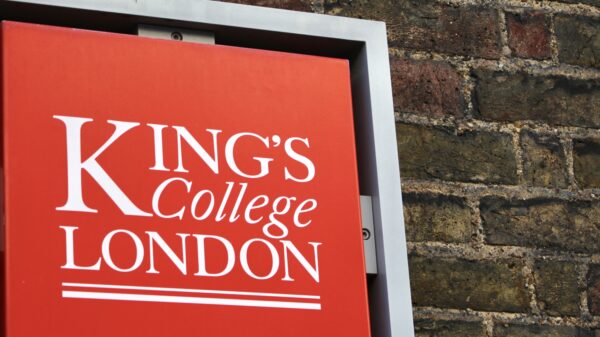Roar staff writer Fintan Hogan speaks with multiple students regarding the recent Russian attack on Ukraine, including one student currently trapped in Kyiv.
Sometimes we must concede that it’s not our place to pass comment. This morning (25 February 2022) a first-year King’s student woke up in a bunker in Kyiv, as the Russian army advanced on the capital. I’ve never experienced genuine fear for my own life. Having always lived a comfortable life in a stable country, these stories personally opened my eyes. If, like me, you’ve never lived through war, read on.
We should use our platform to amplify the voices of those experiencing the pressing issues of the moment. This piece documents some of the perspectives of students, both at King’s and elsewhere, who are worried about their own or their family’s safety.
Trapped in Kyiv
Roar: Were you raised in Ukraine and do you still have family there?
I am originally from Donbas. Yes half of my family still lives in Donbas and Kyiv. I still keep contact with my family who’s left there whenever there’s service and we can call each other.
(Donbas is the region of south-eastern Ukraine. It is controlled in-part by Russian backed separatists and was one of the first places to receive Russian military border crossings.)
R: Has Russian invasion been a worry for your family for a while? Did they make any preparations, especially after the annexation of Crimea in 2014?
We didn’t believe it and many people as well until 5am yesterday. In terms of preparation I am not sure. Lots of machines and equipment had been accumulated around the borders of Ukraine and Russian for at least a month.
R: What has been your experience of the invasion so far?
I came out of a bunker this late morning. Spent half of last night there. It was so bad yesterday [Thursday 24 February]. It’s so bad in other cities… I am stuck here. Can’t leave the country… Everyone woke up at 5am yesterday. The reason was rocket explosions. Russia attacked some army bases in different regions. Then they started to attack cities like Kharkov and Mariupol.
In the afternoon the fight was around Kyiv. This morning started with some drones being shot down and they have fallen on residential buildings and there was a massive fire. What is happening now is apparently tanks are getting close to the city of Kyiv. In my neighbourhood every market is closed, every pharmacy and every fuel station. There is no petrol in most parts of Kyiv so I am not able to travel far away because if that.
R: Do you have much hope for Ukrainian resistance? Are you scared for your own life?
[I] hope nothing tragic will happen tonight.Parallel with Crimea
Russian actions in Ukraine have a clear parallel in the annexation of Crimea in 2014. A first-year Pharmacy student at King’s offers a perspective from the Crimean half of their family. Their family still live in Ukraine, with some remaining on the peninsula and others now living in Kyiv.
Their great-grandfather fled Crimea in 1944, fearing immanent Soviet occupation. The student drew a direct parallel between Soviet and Russian expansionism. There was clear frustration that Russian aggression had become such a diminutive issue in western news over the last few years, and a belief that the experiences of those living under occupation were under-publicised.
Some of their family live in Crimea even now under Russian occupation. The family have not suffered huge financial losses, but now enjoy far less security of rights. The student worries about brutal stories of repression, apparently intended to stop residents from contacting the outside world. New rules enforced by Russian administration reportedly include Russian-language requirements, suppressing native Tatar and Ukrainian speech.
Invasion was “predictable” They and their family have “always lived with fear… [it’s] not something new”. Their uncle managed to flee Kyiv and reach Ankara, but there has been no contact with those who remain in Ukraine. Their immediate family are scared to contact those who fled to Turkey, since they are expecting only bad news about extended family.
Damoclean sword
One 16-year-old student shared their experience of visiting Eastern Europe and feeling constant anxiety around Russian intervention. Half-Ukrainian, he was raised with “100% negative” perceptions of Russia. However he readily recognised that this was fear of the Russian state, not the Russian people, who generally have no more control over the actions of Putin than he does.
His fear is aptly shown by an anecdote from a recent family trip to Lithuania. As a thunderstorm began overnight, he panicked and ran into his parents room, assuming that the noise was that of artillery fire. “I ran to my parents… opened the door and just shouted ‘the Russians are coming.'” He suggests that this awareness and fear has been the experience of many Eastern European residents.
For ‘as long as he can remember’, his family kept stores of supplies in anticipation of Russian invasion. His aunt was supposed to flee to London, his uncle to Poland and his grandparents to the countryside. There was “no safe way” to do this, and his aunt and uncle are now stuck near Lviv in western Ukraine, while his grandparents are still trapped in Kyiv. Preparations were derailed when banks stopped allowing the movement of their money out of Ukraine in the day preceding invasion.
“The stress has impacted me quite a lot.” I cried in the morning when I found out about it and it’s constantly on my mind”he bravely admitted. “People aren’t taking it as seriously as they should [be]” but he suggested that the prominence of news coverage has been reassuring.
Russian “disgust”
It’s important to remember that perspectives are neither uniform nor homogeneous. Media overgeneralisations are inaccurate and divisive.
The Russians of KCL society are planning a protest at the Russian embassy in London on the evening of February 26. In a similar vein, one Russian student at University College London (UCL) stated that she was “absolutely disgusted” by the incursions, and that she was “yet to hear a single valid explanation for the invasion… This is Putin’s war and Putin’s war only.”
“[It is] our responsibility as Russian citizens to speak out… It is a shameful reflection on all of us.” She expressed support for protests in Moscow and St Peterburg, raising awareness on social media. However, she suggested that those living in Russia would have skewed perspectives on the conflict. Attitudes towards Russian-affiliated media groups like RT were generally derisive.
“The scary thing is that in the 3-4 months I used to spend there a year, the propaganda would get to me. I’d listen to it and it just sounded so rational… The light way in which [2014] sanctions were treated genuinely convinced the population that nothing was wrong, that the stocked shelves in supermarkets wouldn’t come at a price, at the same time as wages fell, benefits were cut or scrapped entirely, [the] retirement age grew, and price skyrocketed…. The propaganda there is so strong that it can only be described as brainwashing.”
“I’m [also] Israeli so I understand innately the concept of having to constantly explain that yes you are from this country, no I don’t support the government action, so I certainly hope [this] doesn’t turn into the exact same thing because it is scary and exhausting to feel like you constantly have to prove that you’re ‘one of the good ones’. However, being outside of Russia makes dissent much, much easier and, as Russian people, especially as Russian citizens (which I am), it is absolutely our job to denounce Russia’s action.”













